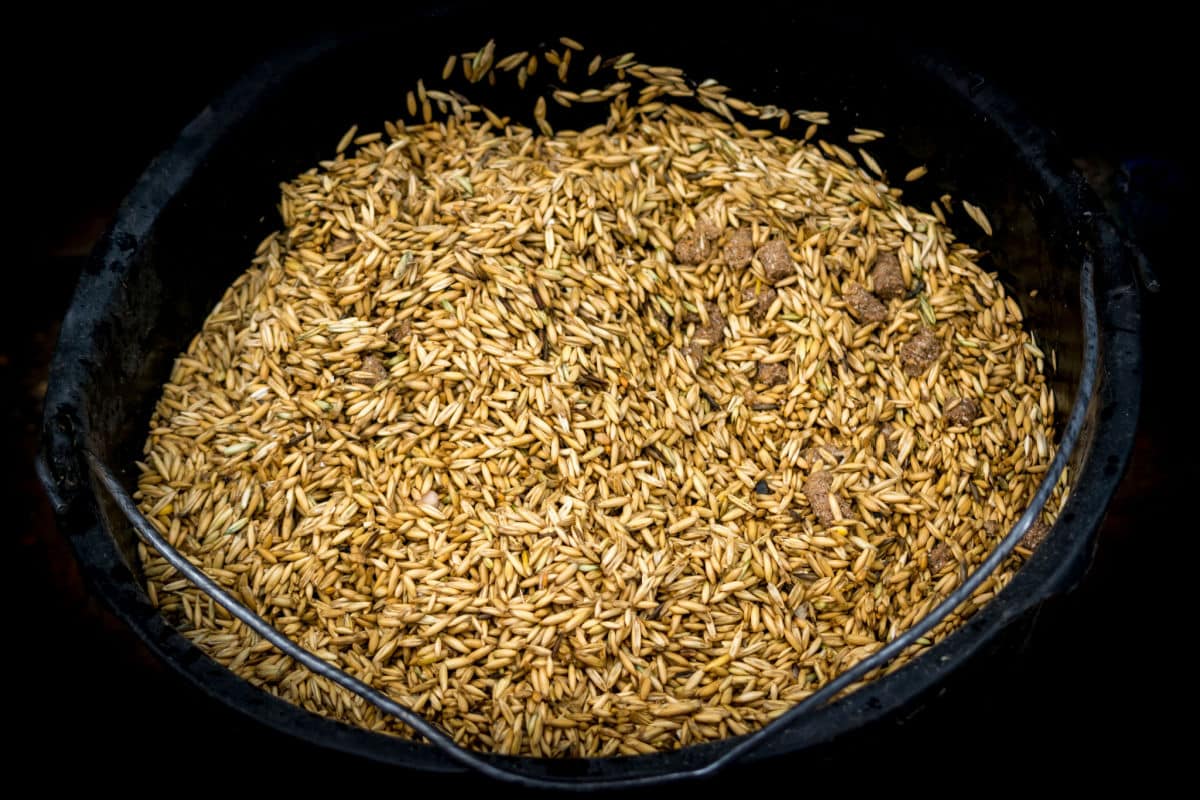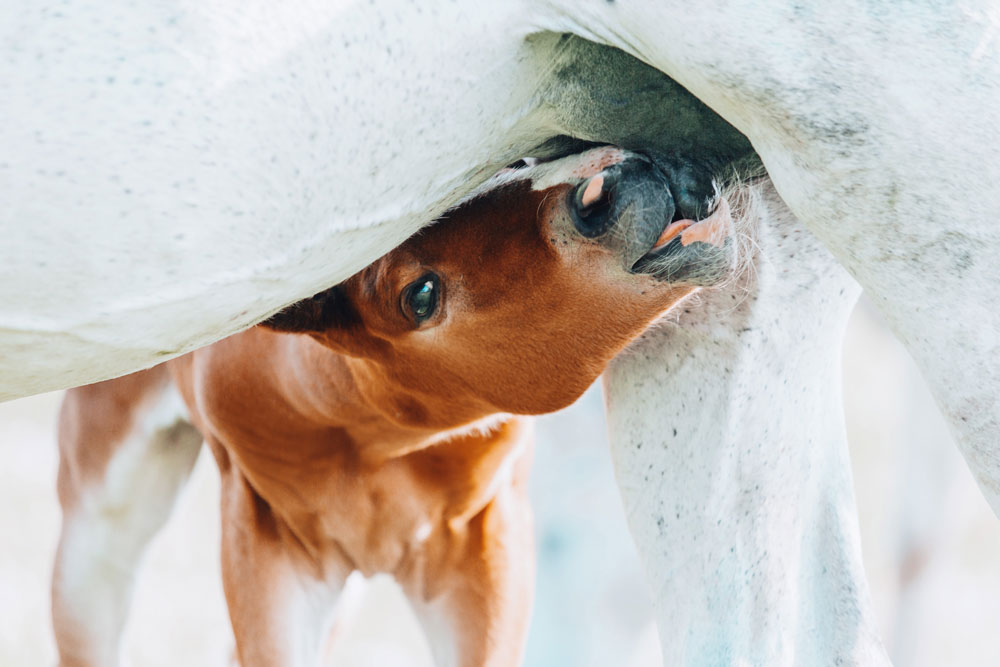If you rely on complete feeds in your horse’s diet, you may be hurting their system with high-glycemic meals that cause spikes and crashes in blood sugar. Understanding what’s in your horse’s feed and how it can affect blood sugar levels is crucial to providing exemplary care and reaching peak performance.
Complete Feeds and Your Horse’s Health
Complete (grain) feeds are a staple in most feed programs, necessary to provide adequate nutrition and energy for performance horses. However, these feeds are often full of sugars and starches, nonstructural carbohydrates (NSC). NSCs are low molecular weight sugars, meaning they are digested and used for energy source much more quickly than structural carbohydrates (forage/fiber). Some complete feeds also contain additional ingredients that are hard for a horse to digest, including molasses, corn, soy, by-products, or middlings.
Equine digestive systems are delicate and can easily become unbalanced. They were designed to take in steady amounts of fiber to use as slow-burning energy. Horses do best on a constant supply of forage only, but a horse used for work or performance will have additional nutrition and energy demands.
Complete feeds with high NSC content will crash your horse fast. The health and performance of your animals require attentiveness when it comes to diet and nutrition, starting with a method for evaluating feeds.
How to Use the Glycemic Index with Horse Feeds
The best way to ensure your horse receives the best feed is to evaluate it using the glycemic index. This index helps determine if an ingredient elevates blood sugar, creating an insulin spike. The glycemic index also helps you rank and compare the foods you give to your horse.
The glycemic index uses whole oats as the standard for feed, which ranks at a value of 100. Feeds with an glycemic index value over 100 produce more blood glucose in a specific timeframe than whole oats. Feeds with a value under 100 produce lower blood glucose. To promote the best nutrition, owners should use feeds with a value of 50 or lower.
Some high GI feed ingredients include:
- Sweet Feed (123)
- Corn (99)
- Beet Pulp + 10% Molasses (95)
- Oats (94)
- Barley (89)
Some low GI feed ingredients include:
- Beet Pulp Dry (46)
- Alfalfa Hay/Cubes (23)
- Bermuda Grass Hay (23)
- Rice Bran (16)
Peak Performance Relies on Stable Blood Sugar Levels
Your horse relies on stable blood sugar levels to maintain good health and performance. When blood sugar skyrockets and crashes, you run into performance issues such as bursts of energy followed by lethargy, moodiness, and discomfort.
Diets high in starch can also cause the microbiota to become unbalanced, therefore affecting hindgut and overall health. In addition to digestive issues, this can lead to problems in the microbiota-gut-brain axis. The gastrointestinal tract releases several different hormones and neurotransmitters. Disruptions of neurotransmitters (signals from the brain to the rest of the body) can lead to negative behaviors, including hyperexcitability and irritability (Holland, 2022).
Diets higher in fiber and healthy fats have been shown to be more effective for performance horses that need focus and precision.
Create a Nutritious Diet for your Horse: Key Components to Keeping Your Horse Healthy and Happy
Read your feed labels and know what you put in your horse’s trough. Most of the available complete feeds are high in NSC, which breaks down swiftly into blood sugar, which then causes insulin spikes.
While creating a nutritional plan for your horse, avoid or minimize these ingredients:
Starches: Corn, corn gluten, corn germ meal, wheat, wheat middlings, wheat bran, oats, oat mill by-product, barley, rye, sorghum, processed grain by-products, Brewers dried grains, Distillers dried grains
Sugars: Molasses, fructose, sucrose
Be especially wary of molasses, as many complete feeds will use it as a sweetener, which turns the food into a sweet feed. Molasses is the most common feed additive.
You can read more about feeding speed horses in this article.
Supplement Your Horse’s Daily Nutrition with SUCCEED DCP
For horses that do need to have grain in their diet, it’s important to pair those grains with sources of fiber and healthy fats to slow digestion and moderate the release of sugars into the bloodstream. This moderated release will help keep blood sugar levels more stable and avoid spikes or crashes that lead to poor performance.
One of the best things you can do for your horse is to feed SUCCEED Digestive Conditioning Program once a day every day.
SUCCEED DCP contains a unique oat flour with a higher-bran, lower-starch content, processed to retain a high concentration of beta glucan. This aids nutrient absorption and helps to moderate the rate of digestion. The oat oil is also uniquely rich in polar lipids, which benefits nutrient absorption and healthy digestion.
Owners who use SUCCEED regularly notice that their horses have:
- Efficient nutrient absorption
- Slow and steady digestion
- Healthy hindgut
- Moderated release of sugars into the bloodstream
- Natural immunity
- Stomach and hindgut balanced and healthy
- Healthy cell reproduction throughout the gut
Talk with your veterinarian about your horse’s health. Switching to low-glycemic feeds and introducing SUCCEED DCP will make a world of difference in their health and performance.
References
Holland, Janice L. (2022) Does Sugar Make Horses Anxious or Hyper? Equine Network, LLC. https://thehorse.com/1111322/does-sugar-make-horses-anxious-or-hyper/




